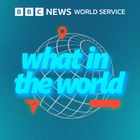
What in the World
Jan 25, 2024
366 million adults worldwide have ADHD as of 2020 - that’s over 6% of the whole population. And more young adults are being diagnosed with the condition. BBC health reporter Dominic Hughes explains the causes and treatment of ADHD.
Does your culture and background affect your diagnosis? Some women have found that their symptoms are not the standard ones that doctors have traditionally linked to ADHD. We hear from people living with ADHD including Abigail Agyei in the UK and mental health advocate Emily Unity in Australia and ask them how ADHD influencers have changed the nature of the conversation online.
Some health professionals have raised concerns about the accuracy of some of this content and whether it could contribute to more self-diagnosis. A study from 2022 looked at the 100 most popular ADHD videos on TikTok and found that over half of them were judged by clinicians to be misleading.
The BBC’s Suhnwook Lee, in South Korea, explains why ADHD prescriptions go up around the time of the annual college exam there. And pharmacist Jonathan Silcock from the UK’s University of Bradford sets out why there’s a global shortage of ADHD medication.
Email: [email protected] WhatsApp: +44 0330 12 33 22 6 Presenter: Hannah Gelbart Producers: Julia Ross-Roy, Maria Clara Montoya, Benita Barden and Luis Felipe Molina Editors: Verity Wilde and Simon Peeks

